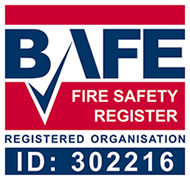Unfortunately when water and electricity come into contact with each other the results can be incredibly dangerous and this is why the bathroom ca be the most dangerous room in the house.
Electrical safety regulations state that electrical sockets are generally not allowed in bathrooms, shower rooms or en-suite bathrooms, unless the room is big enough with sufficient space for the to allow at least three meters from any water supply such as the sink, bath, shower or toilet. However this rule does not apply to specially designed shaver sockets.
When it comes to bathroom lighting it’s always best to choose lights which have been designed for use in bathrooms or shower rooms. Ideally bathroom lights should be enclosed and it’s advisable to choose lights which fit close to the ceiling rather than hanging down. In addition a pull-cord ceiling-mounted switch is the safest option but if you’d prefer to have normal wall-mounted switch, this must be fitted outside the room to be in line with electrical safety regulations.
A radiator connected to your central heating system is the safest way to keep your bathroom warm but if you already have a bathroom heater, it must be fixed (freestanding heaters must never be used) as far as possible from the shower or bath. A central heating radiator really is the best option though. It is also very important to ensure that if you have an electric shower; it must be supplied on a circuit directly from the fuse box which, in turn, should be protected by an RCD device.
Last and by no means least, never, ever use a mains supplied appliance in the bathroom as hairdryers, straighteners etc. have the potential to cause a serious injury or eve death.
It’s important to remember that bathrooms and shower rooms have special requirements for electrical installations as any electrical work has to comply with Part P of Building Regulations. If you are considering having electrical installation work carried out in your bathroom, it is essential to use a registered company such as Dalec. We are registered members of the ECA – the Electrical Contractors Association – which means that we have to undergo regular, rigorous technical assessments to ensure that our work is safe and installations meet industry standards. To find out more about our services or to arrange for a free, no-obligation quote, please don’t hesitate to get in touch.








